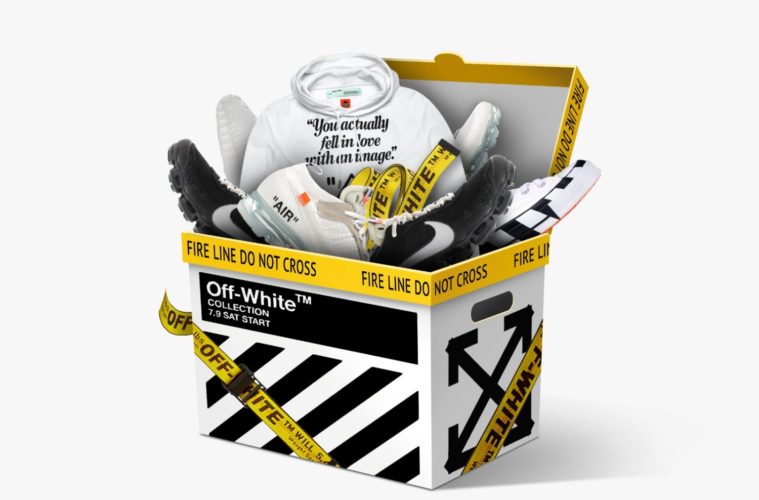*Branded Sponsor Content*
We are in the era of third-party trust. The Internet age has ushered in unparalleled access to the world’s markets from any corner of the planet. Before the Internet, in order to start a serious business, you needed a license and a decent amount of capital. In 2020, all it takes to start a business is a single click on a website. Platforms like Shopify, eBay, and Amazon allow anyone and everyone to start selling their goods at a moment’s notice.
This is great for small business owners and aspiring entrepreneurs, since the low barrier of entry provides truly free access to people who want to bring their new product or service to the world. It provides a level of unprecedented freedom. But — there is one glaring hole in this system, that has not been remedied even all these years later. It is not easy to trust a third-party. The fact that anyone can create their own Shopify store means that consumers have to be extremely cautious in their vetting process. Before safely purchasing something from a small online store, it’s important to look at reviews and ratings online, because you never know if it’s a scam or not. The low barrier to entry for online markets bring in the obvious problem of scammers, who will simply take your money and run without delivering anything.
There is a less sinister but more ubiquitous problem with third-party small stores: pure incompetence. Many of these third-party retailers (on sites like Amazon and eBay) aren’t scammers, but they may not necessarily have good quality products, or good consumer protection. It’s often the case that Amazon buyers who purchase non-fulfilled products get something that is incorrect, broken, or missing. This isn’t the case on Lootie, where there is a guarantee in place. Unfortunately, Amazon buyers usually have no recourse since the quality assurance policy accompanied with third-party sales is often pretty bad. They favour the merchant heavily, since the merchant is the one who wrote them! In the end, whereas we would all love to use third-party retailers consistently (thanks to the variety and novelty), it’s not always feasible because of the missing trust factor.
Lootie has stepped in and fixed this problem. It’s a very similar solution to Amazon’s fulfilment program, except with some verification steps for added security. Firstly, let’s talk about what exactly Lootie entails. Lootie is a catalogue of mystery boxes. Each box gives you a mystery item when you purchase it — you never know exactly what you’re going to get, so the thrilling element of shopping remains intact. Lootie’s official box catalogue includes Supreme box logo, Yeezy box, Off White box, Apple mystery box, Gaming mystery box, Hypebeast mystery box, Hype shoes, and many more. You may be wondering — wow, that’s a lot of boxes! But we just spoke about the risk of third-party retailers — how does Lootie bring in the trust factor? What’s different here?
It’s a two component process. The first component is authenticity verification. Every product you buy from Lootie is verified to ensure that it is 100% authentic. It’s impossible for you to get a fake or defective product from Lootie. Doing so involves either buying things directly from the manufacturer’s store (no third-parties involved), or it involves a rigorous verification process. In fact, Lootie has even partnered up with StockX to provide state of the art verification for clothing and other streetwear merch like shoes. Ensuring that everything Lootie sells is 100% real — that’s the first part.
The second component involves having robust consumer protection. Of course, the vast majority of products sold by Lootie will have zero problems whatsoever. However, when you are pushing so much volume (with over 1 million customers), even if you have a 99.99% satisfaction rate, there are bound to be a couple of rare outliers. Luckily, Lootie has you covered in every possible scenario. If there is ever any problem with an item you receive — be it incorrect, damaged, defective, or missing — Lootie has in place a full refund policy, and you will be made whole for the damage. It’s a solution that several third-party stores today don’t use, because it affects their bottom line — however, with Lootie, customer satisfaction always comes first.
Lootie takes this model and applies it site-wide to every single box. Thus, it has become a universal eCommerce platform, with products of various kinds, without compromising the trust factor. Usually, when you find a website that sells a myriad of products, it’s usually a mix-up of several individual vendors, and you don’t really know who to trust. A great example is eBay — eBay itself is a huge and trusted platform, but the individual vendors on eBay may not be. On the other hand, even though Lootie has such a massive collection of products, its unique verification and authentication system sets it apart from other stores. There are very few places where you can find thousands of different products all on one trusted site, and when you factor in the thrill of the mystery box, it makes Lootie completely unique. The next time you’re looking to shop online, be it for tech or fashion, don’t get scammed. Don’t shop around for merch that isn’t 100% authentic or reliable. You know that your one-stop shop for a trusted and fun eCommerce experience is Lootie.com.
Instagram: @LootieCom
Facebook: @LootieCom
Twitter: @LootieCom
Advertising disclosure: We may receive compensation for some of the links in our stories. Thank you for supporting LA Weekly and our advertisers.

